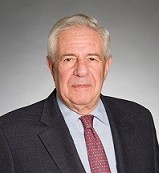There is a corrosion character in our society. The post World War II ethic of loyalty, honesty and commitment has long disappeared. While the current goal-centered individualism has contributed significantly to our entrepreneurial environment, one that is more creative and interesting, it has resulted in significant social and economic instability. Are loyalty, security and ethics casualties of our times?
The news continues to be replete with examples, including our governing Congress that has lost all sense of civility.
In 1835, Alexis de Tocqueville commented that the love of wealth is the motivation for all Americans. This need to accumulate took on more significance and covered more segments of our society as our economy grew. He also suggested that we are better at spending than other peoples. As a result, our greed seems to have undermined the concern for others’ human condition. It is important to note that greed and ambition are vastly different. Without boundaries, greed often infects beyond an individual to poison the entire body upon which an institution is built.
Ethics encompass a belief system defined by honesty, responsibility, and trust. Further, sincerity, truthfulness, competence and reliability should be at the root of our lives. Winning the trust and confidence of the constituents we serve, among whom are clients, creditors, customers, employees and community, requires a pattern of behavior based upon an acceptable belief system. Quality in any relationship will be missing in direct proportion to the degree that the belief system is by-passed.
Four (4) ethical systems are discussed in the literature.
End result ethics (John Stuart Mill) by which morality is judged by considering the consequences of one’s actions.
Rule ethics (Immanuel Kant) are established through laws and standards.
Social contract ethics (Jean Jacques Rousseau) by which morality is determined by the norms of the community.
Personalistic ethics (Martin Buber) allows one’s conscience to define morality.
Leaders are expected to set the ethical tone of any community. Laws ensure that a legal compliance program is in-place and if effectively administered, prevent/control misbehavior (imposed rule ethics). But in the gray area, we are seeing aspects of unethical behavior that have become more highly visible and, therefore, increasingly scrutinized. These are violations of social contracts. Reports of unethical conduct to agencies responsible for adjudicating such complaints are increasing. Likewise, malpractice complaints are increasing in all of the professions.
What happens in a culture where constraints are violated and improper conduct is left to percolate? These are not just social issues. This is a failure of leadership.
Leadership must stand ready to meet the many ethical dilemmas that rise up. Decisions that present an economic-ethical conflict are ever present. A right course of action requires fortitude, skill and a commitment to give priority to ethical values above other personal influences.
Good, right decisions resolve conflicts present in the decision making process. Any condition that could result in undue benefit to one party is considered to be a conflict of interest, or at worst, malpractice. Biased recommendations, misuse of confidential information and misrepresented credentials are just a few examples.
Is full disclosure an adequate defense against conflicts of interest? No. But it does set in place an early warning system to detect any potentially miscreant behavior. It serves as a signal “buyer beware!” Social pressures affect our behavior and, as financial risks expand and commitments become more burdensome, foundations in our society are fractured.
What does all of this mean to the interim executive and to his/her client? Our obligation is not only to the client but to the many constituencies that are affected by our service. There is inherent conflict even before any engagement originates between the referral source driven by a self-serving agenda and the client and members of its larger community. Is our world a zero sum game, i.e. when someone wins, there must be a corresponding loss?
The means and the results are both important. Each constituency is affected differently as one travels the continuum from start to finish. As many say, “What goes around, comes around.” The character we foist on others today may return when we least expect it.






